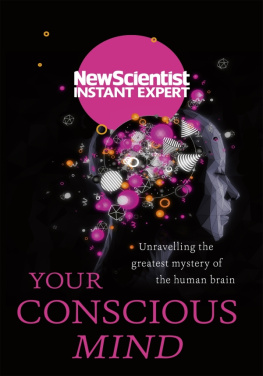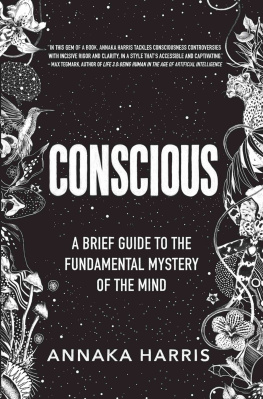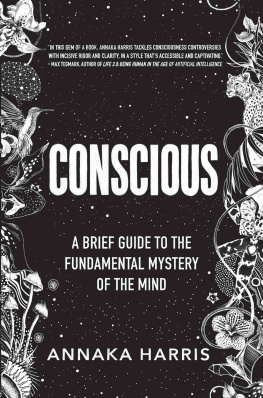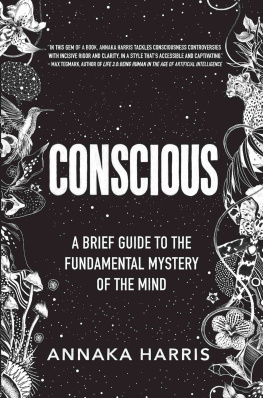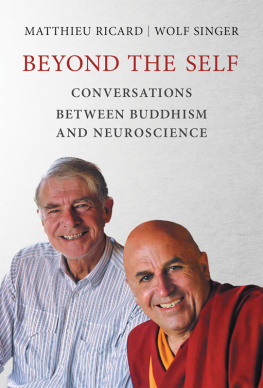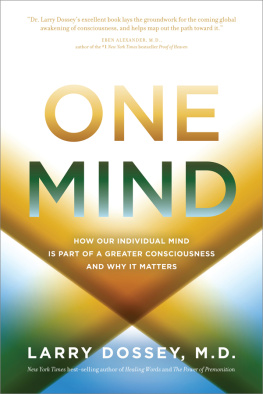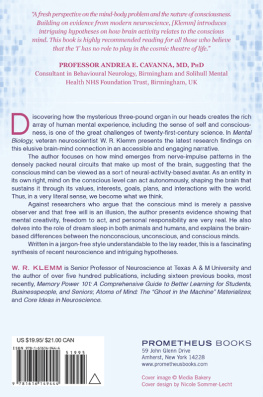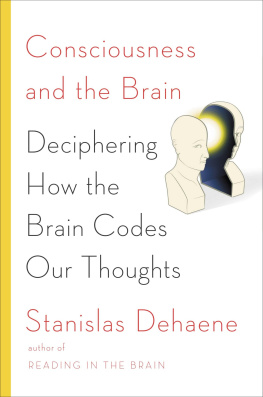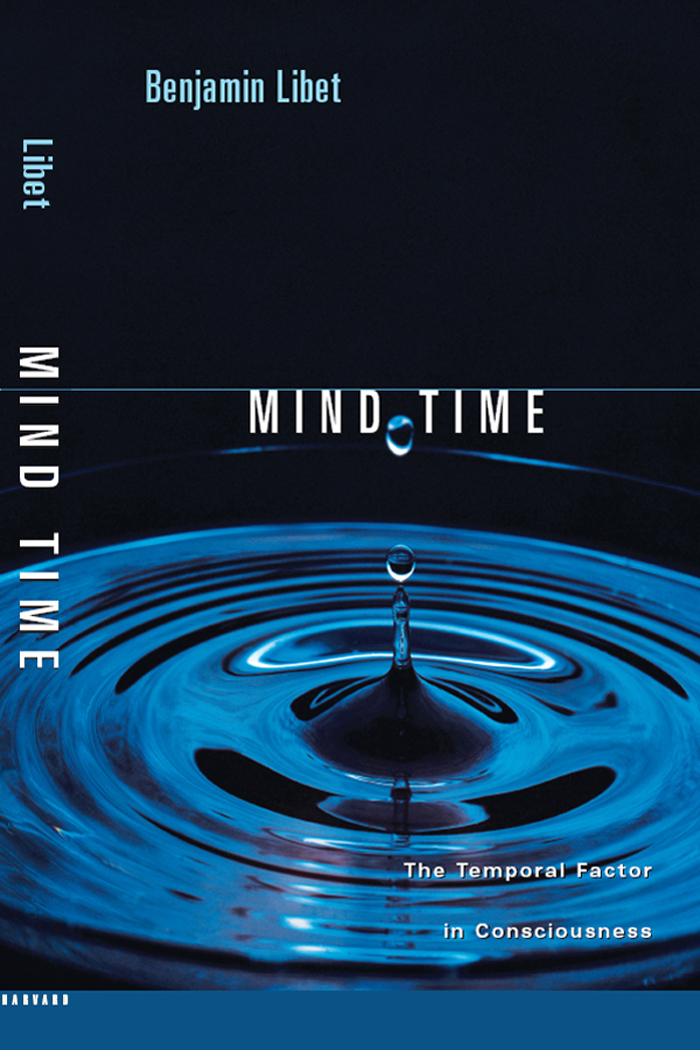PERSPECTIVES IN COGNITIVE NEUROSCIENCE
Stephen M. Kosslyn
SERIES EDITOR
MIND TIME
The Temporal Factor
in Consciousness
Benjamin Libet
HARVARD UNIVERSITY PRESS
Cambridge, Massachusetts
London, England
Copyright 2004 by the President and Fellows of Harvard College
ALL RIGHTS RESERVED
Printed in the United States of America
First Harvard University Press paperback edition, 2005.
Library of Congress Cataloging-in-Publication Data
Libet, Benjamin, 1916
Mind time : the temporal factor in consciousness / Benjamin Libet.
p. cm.(Perspectives in cognitive neuroscience)
Includes bibliographical references and index.
ISBN 0-674-01320-4 (cloth)
ISBN 0-674-01846-X (paper)
1. Consciousness. 2. Time perception. 3. Memory. 4. Cognitive neuroscience.
I. Title. II. Series.
QP411.L538 2004
153dc22 2003056934
To Ralph Waldo Gerard, Sir John Eccles, and K. Allan C. Elliott
CONTENTS
I just typed the word consciousness into the search engine in Amazon.com, and it returned 2,670 titles. If I wait a few weeks, there will probably be more. Does the world really need another book on consciousness? Yesif we are talking about the one you are holding in your hands, right now. This book is strikingly different from most of the others in one key respect: It focuses on empirical discoveries, not speculation or argument. Benjamin Libet has an enviable track record of producing solid empirical findings about the relationship between neural events and consciousness. And these findings are not simply reliablethey are also surprising. His discoveries were at first controversial, but have withstood the test of time. Surprising findings play a special role in science, given that they (by definition) upset the apple cart of conventional wisdom. His results must now be explained by any theory of consciousness and its neural underpinnings. This book gathers together Libets contributions in one place, and puts them in context.
Libets work has focused on temporal relations between neural events and experience. He is famous in part for discovering that we unconsciously decide to act well before we think weve made the decision to act. This finding has major implications for one of the deepest problems in philosophy and psychology, namely the problem of free will.
First, a brief overview of the basic discovery: Libet asked people to move their wrist at a time of their choosing. The participants were asked to look at a moving dot that indicated the time, and note the precise time when they decided to flex their wrist. The participants reported having the intention about 200 milliseconds before they actually began to move. Libet also measured the readiness potential in the brain, which is revealed by activity recorded from the supplementary motor area of the brain (which is involved in controlling movements). This readiness potential occurred some 550 milliseconds before the action began. The brain events that produced the movement thus occurred about 350 milliseconds before the participant was aware of having made a decision. Libet shows that this disparity is not simply due to extra time required to note and report the time.
Why is this finding important? Consider two reasons: First, on the face of things, the finding suggests that being conscious of having made a decision might be best thought of as a result of brain processes that actually do the work, rather than as part of the causal chain of events leading up to a decision. Second, Libet points out that even if a movement were initiated by unconscious forces, there is nevertheless ample time to veto an act, once one is aware of ones intentions. Libet believes that this observation keeps the door open for traditional notions of free will.
But does it? Consider an argument against free will, based on one developed in detail by Strawson (1994; see also www.ucl.ac.uk/~uctytho/dfwVariousStrawsonG.html):
1. At birth, ones thoughts, feelings and behavior are determined by genes, prenatal learning, and environmental stimuli.
2. Subsequent thoughts, feelings and behavior are built on the foundation present at birththey are determined by ones genes, learning history, and present stimuli. All decisions and choices are based on reasons, and those reasons are a direct result of ones accumulation of experience, as modulated by genetic factors.
3. If one tries to change oneself, both the goals and methods of such change are themselves determined by genes, previous learning, and current environmental stimuli. What one can be is determined by what one already is.
4. Adding random factors would not confer free will. Klein (2002; Stapp, 2001; and others) notes that simply adding indeterminacy to a system does not make its actions free if they are not already free. In fact, adding randomness decreases freedom rather than increasing it. Random behavior is not free will.
5. Thus, this argument goes, theres no free will to be exercised during the interval between when one becomes aware of an impending action and one performs it. Whether or not you will squelch the action is as determined as are the factors that initiate the action in the first place. Even if one has time to override ones unconscious urges, theres no free will at work if ones conscious decisions are themselves determined (cf. Wegner, 2002). Libets time to veto no more confers the opportunity to exercise of free will than the time between putting eggs on the skittle and waiting for them to fry provides the eggs with the opportunity not to cook.
Nevertheless, at least to my mind, something smells right about Libets proposal. In particular, the opposite of being determined is not necessarily being random. Klein (2002) notes that classical deterministic views are rooted in a world view that is not in fact correct. Many events in the real world are not like pool balls, hitting one another and careening off the sides of the table in predictable ways. We know that many physical systems have chaotic elements: The way they respond to a perturbation depends on tinyin principle, never precisely measurabledifferences in their start state. Freeman (2000) and others have shown that at least some aspects of brain function are best conceived as such systems. Is it possible that the very nature of the brain confers free will? Kane (1996) has suggested as much, and I will summarize a version of the type of view he advocates (although he focuses on process that may occur when one is faced with difficult decisions, the basic ideas can be extended further).
Lets consider one possible way in which this feature of the brain may keep the door open for Libets idea.
1. Libet is right to focus on consciousness when theorizing about free will: In order to employ free will, one must evaluate information in working memory. Such information includes the alternative choices, the rationales for each, and the anticipated consequences of making each choice (although not all this information must be in working memory at the same time). If an external force coerces us, or we are operating on automatic pilot, we are not exercising free will.
2. The rationales and anticipated consequencesand even, depending on the situation, the alternative courses of actionare not simply looked up in memory, having been stashed away like notes in a file after previous encounters. Rather, one constructs rationales and anticipated consequences, as appropriate for the specific situation at hand. This construction process may rely in part on chaotic processes. Such processes are not entirely determined by ones learning history (even as filtered by ones genes). By analogy, consider the path of a raindrop dribbling down a pane of glass. It zigs, it zags, tracing a path best explained with the aid of chaotic principles. The same raindrop, striking precisely the same place on that pane on a warmer day (which would cause the glass to be in a slightly different state) would take a different path. In chaotic systems, very small differences in start state can produce large differences downstream. The pane of glass is like the state of the brain at any instant. Depending on what one was just thinking about, the brain is in a different start state (i.e., different information is partially activated, different associations are primed) when one constructs rationales and anticipated consequenceswhich will affect how one decides. (Note that this idea does not simply move the problem back a step: What one was just thinking itself was in part a result of nondeterministic processes.) Our thoughts, feelings and behavior are not determined; we can have novel insights as well as second thoughts.


